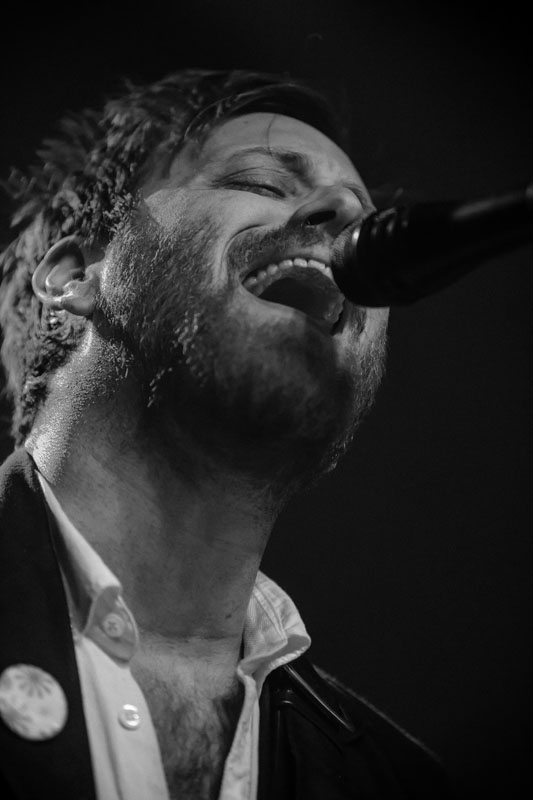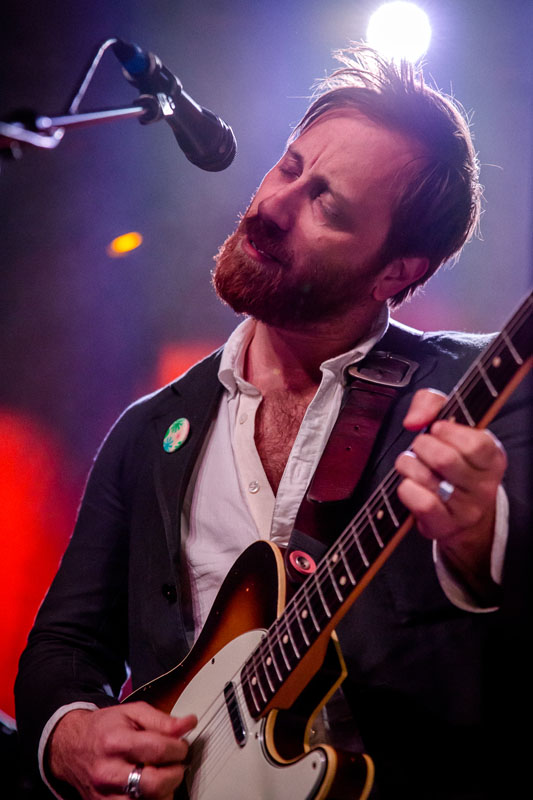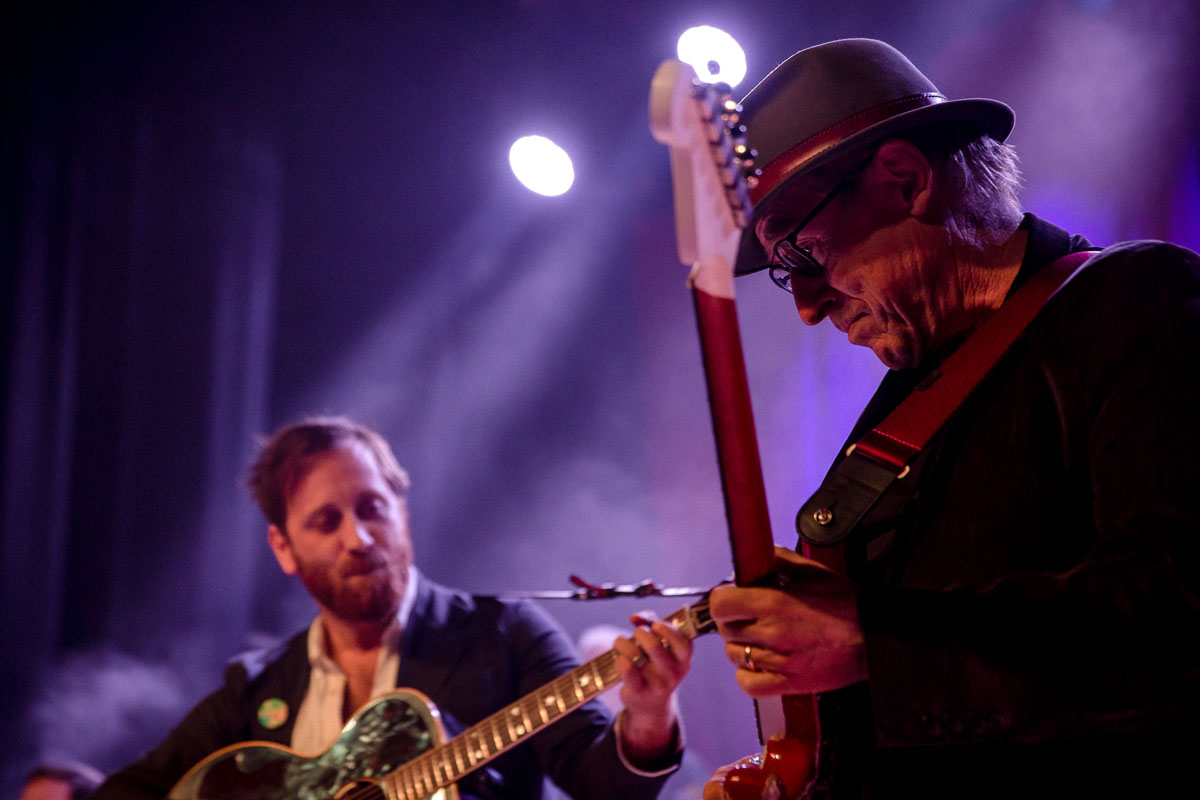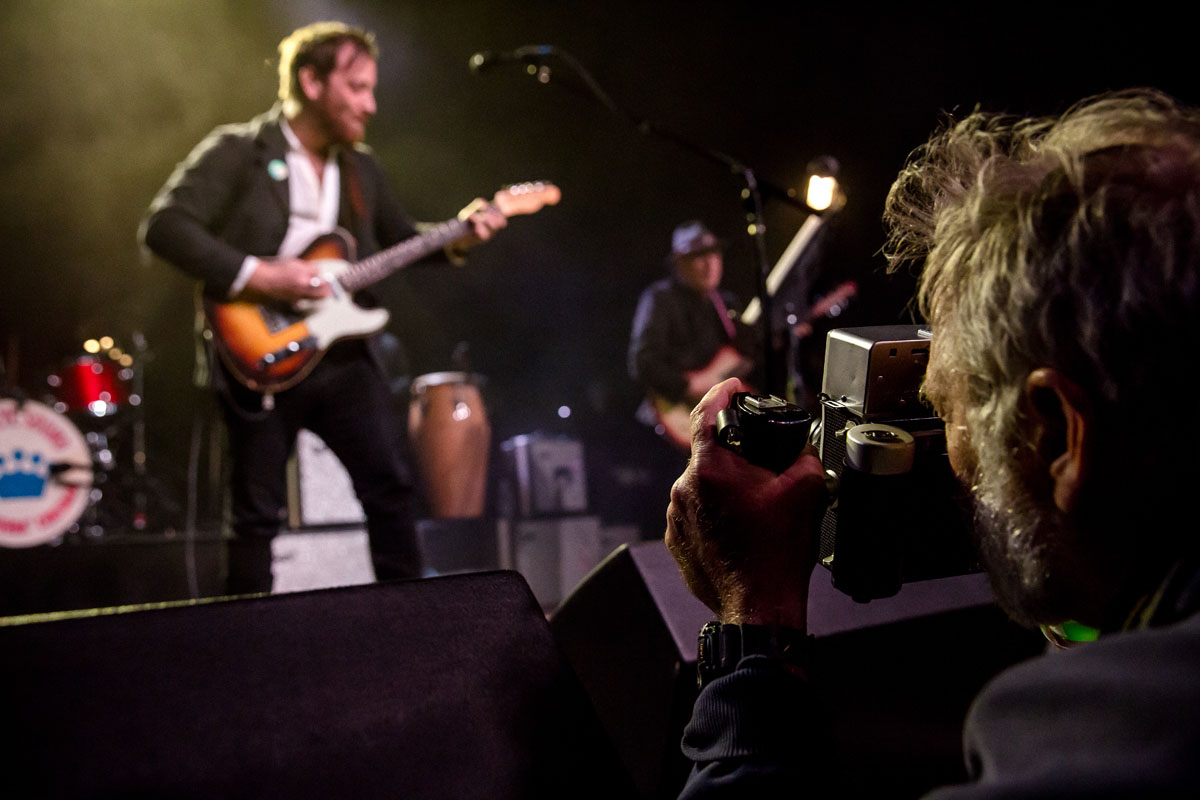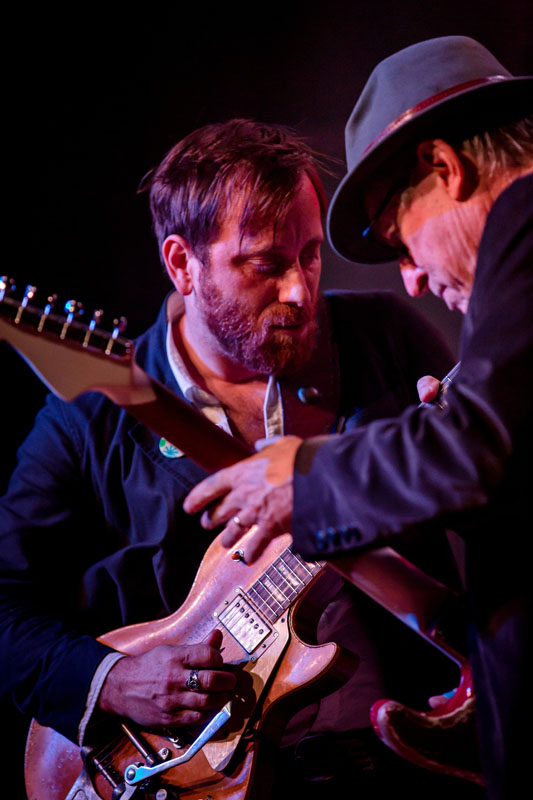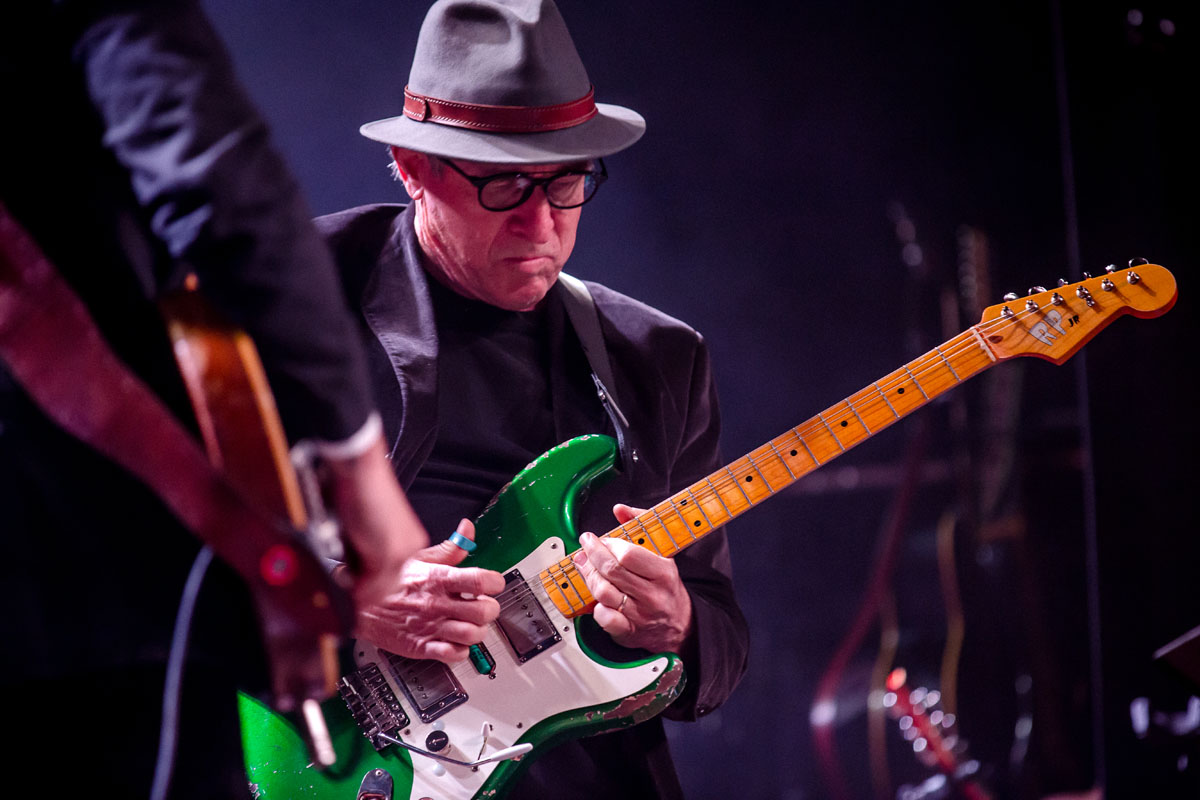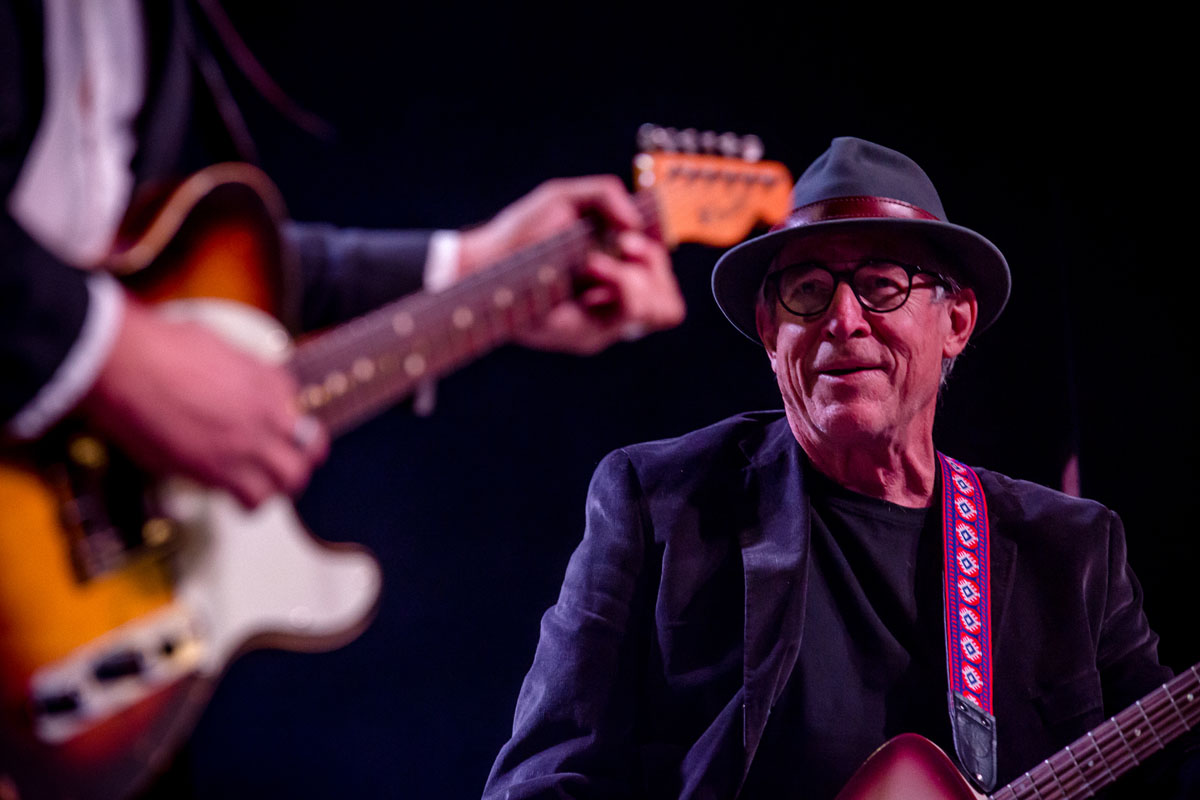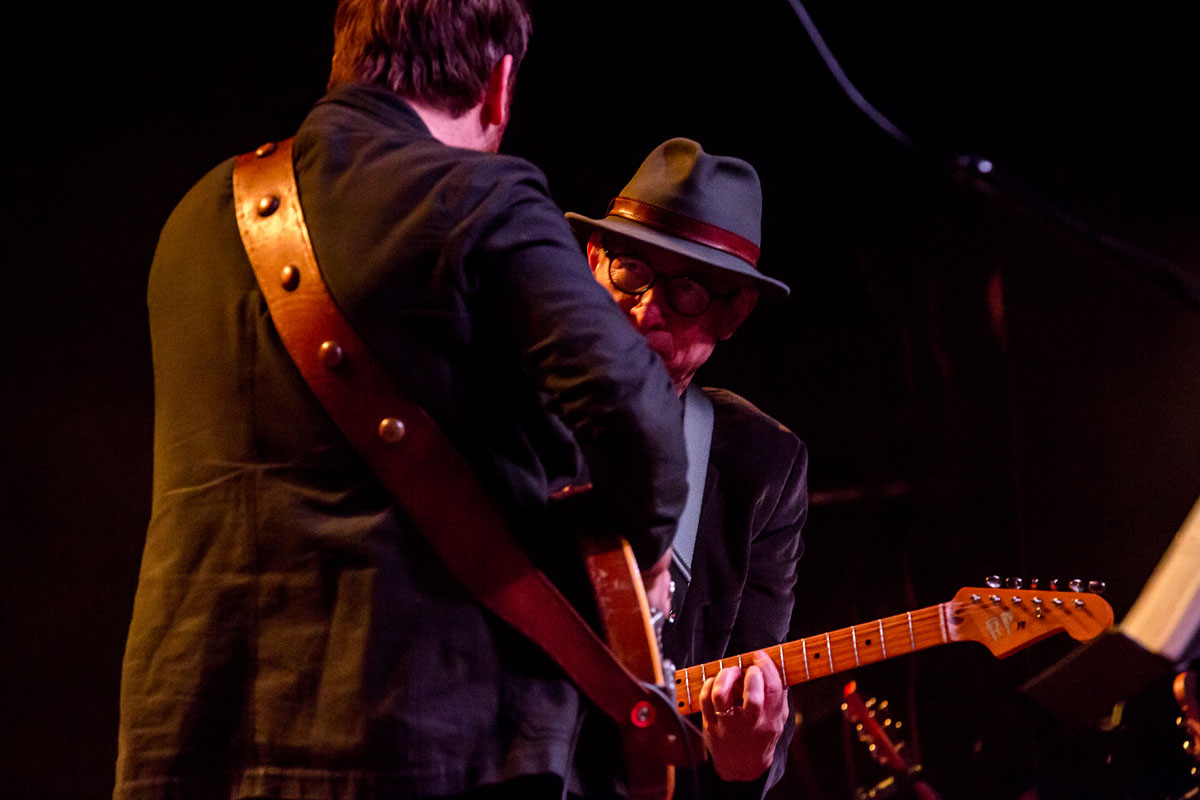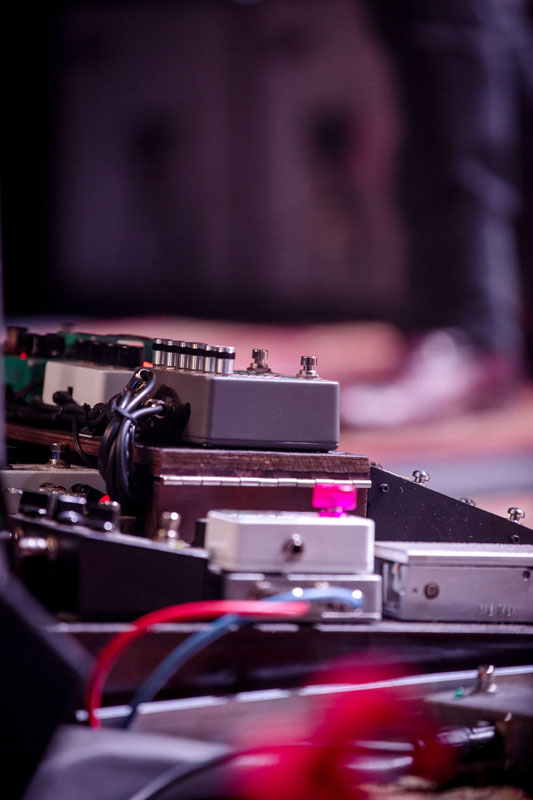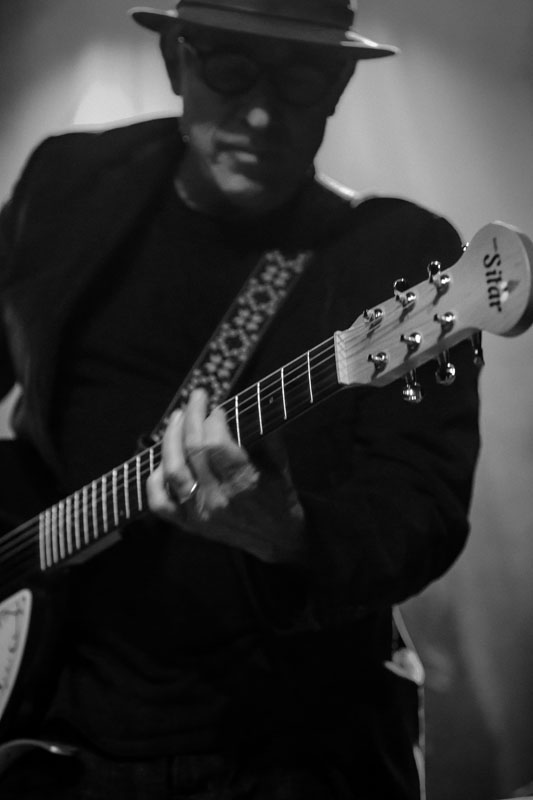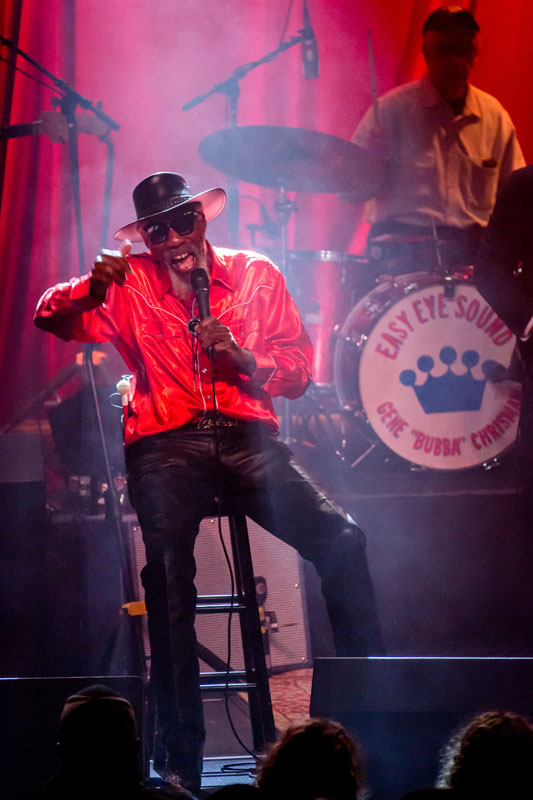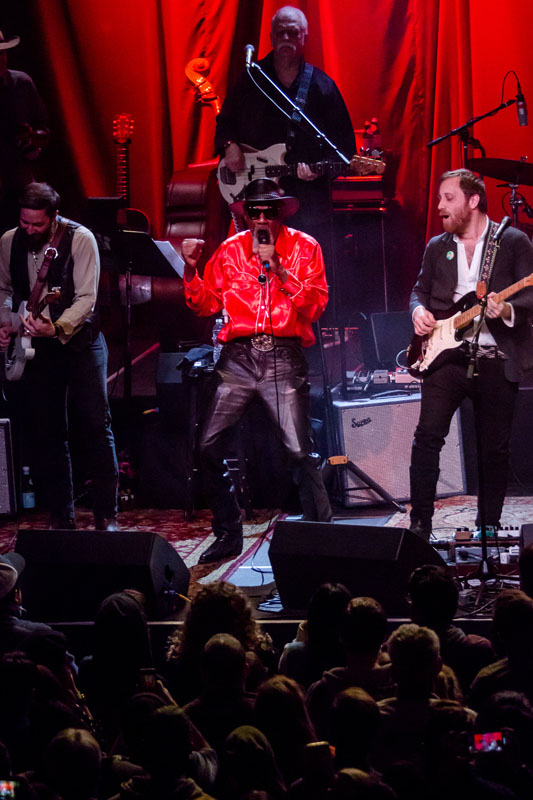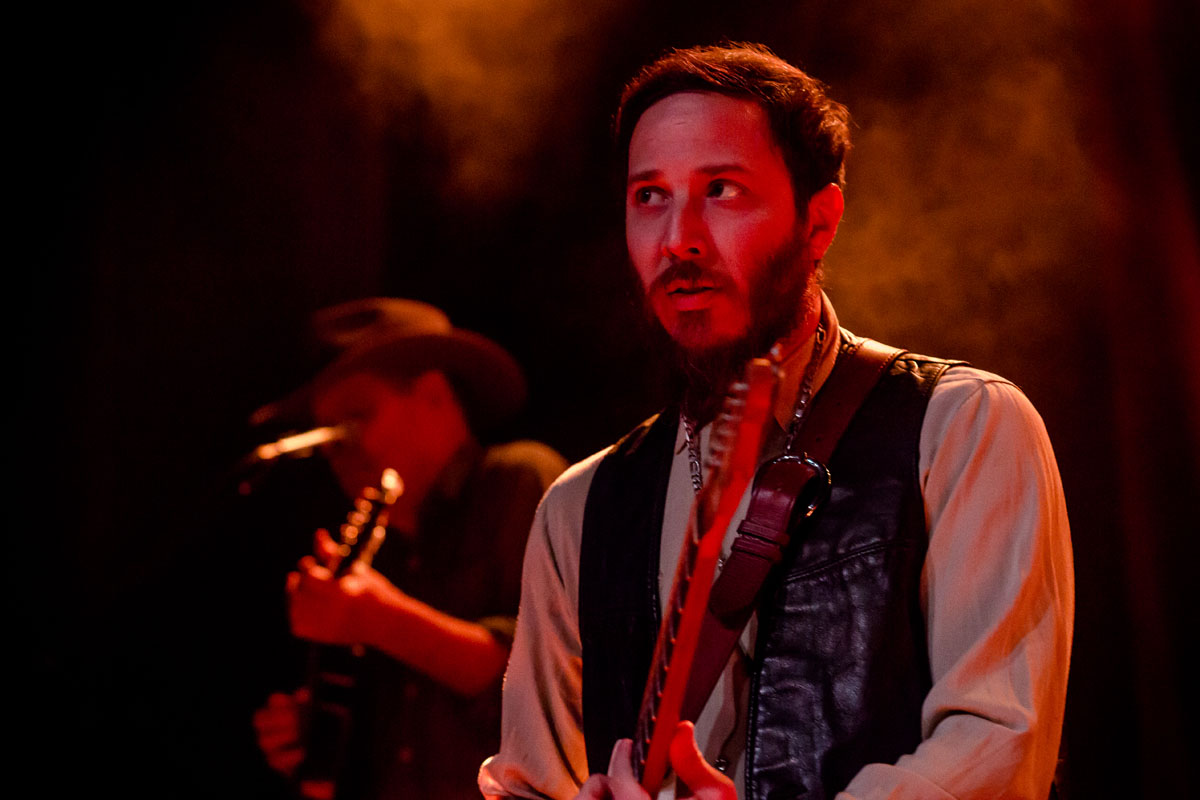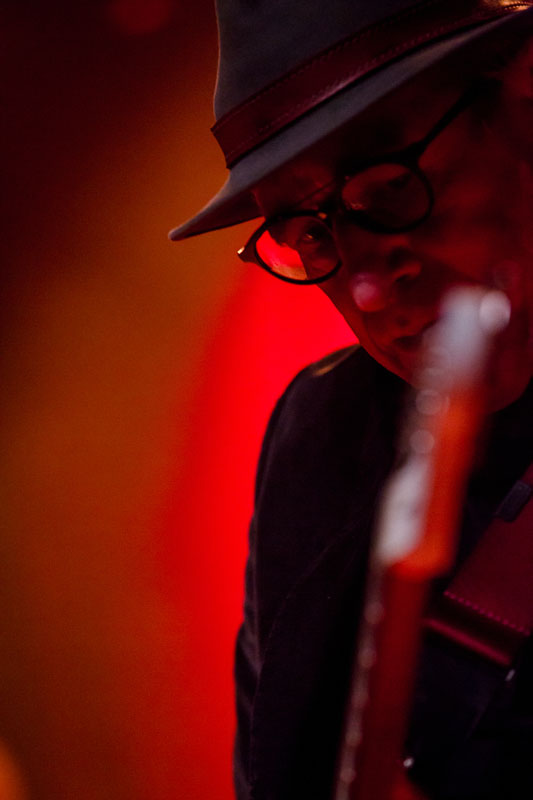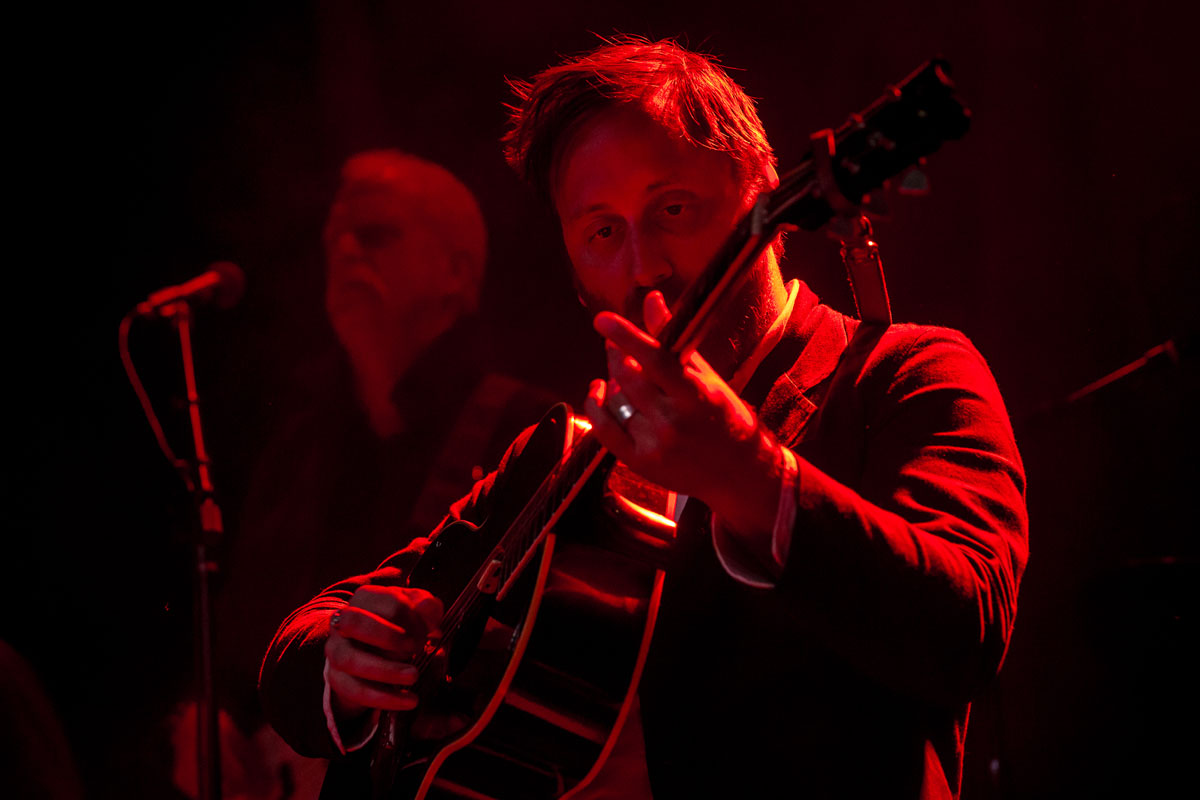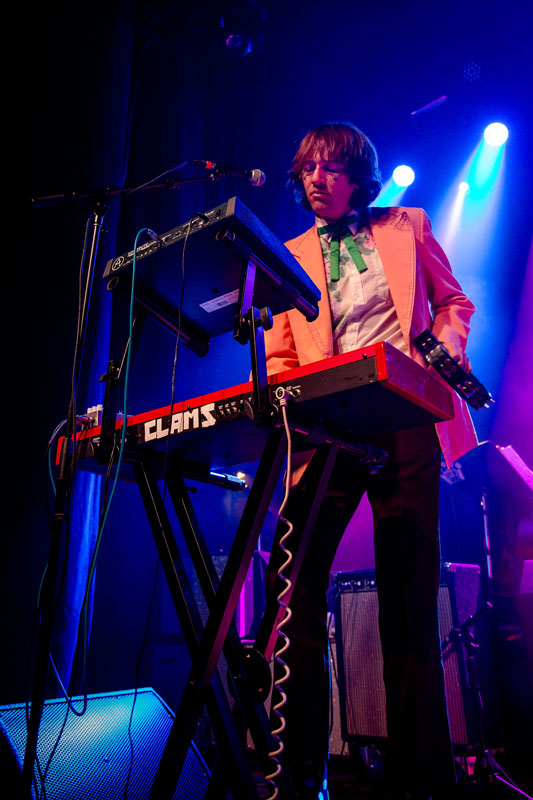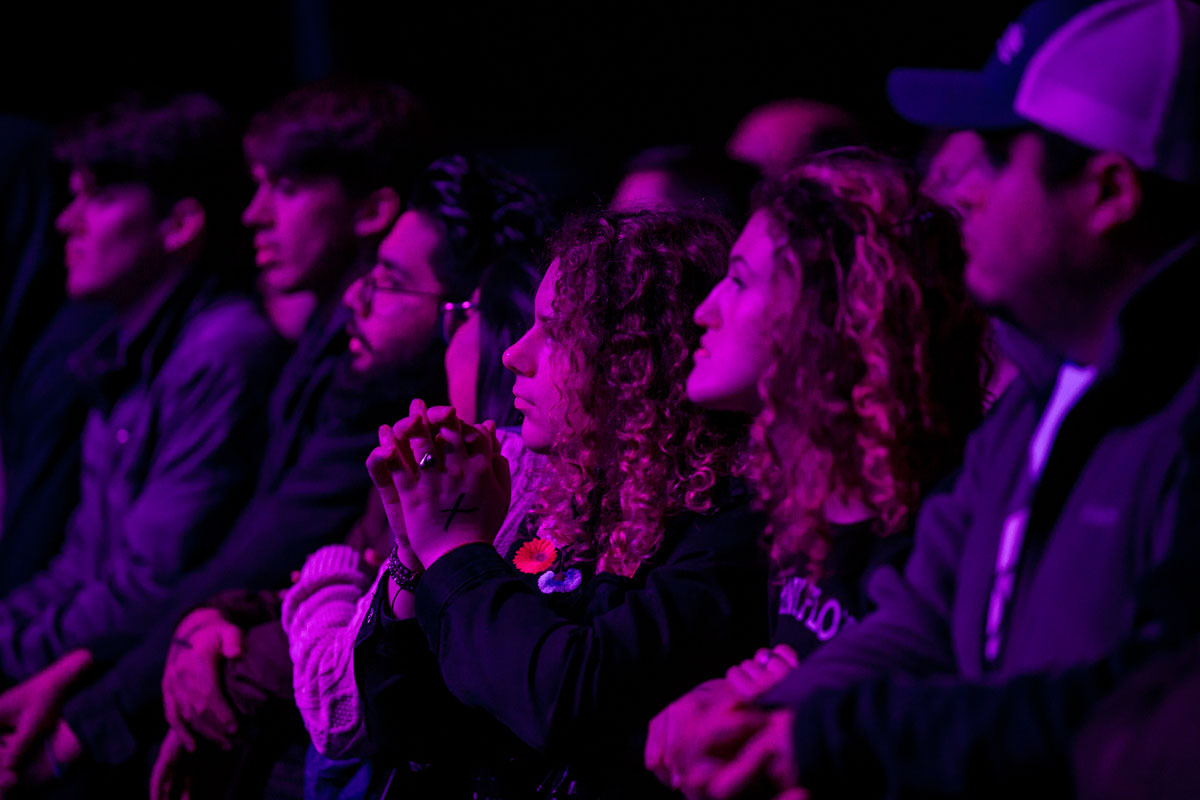Removed From The Burden Of The Black Keys And Rock Stardom At Dallas’ Canton Hall On Thursday Night, Dan Auerbach Was All Smiles.
All Photos By Allan Hayslip.
There is a version of Dan Auerbach’s career where he never gets off the Black Keys merry-go-round.
He simply keeps cashing in, and slowly goes numb playing variations on the same songs to packed arenas until he can no longer bear it. It would not be the first time a rock star decided to ride his success until it or he collapsed.
Instead, Auerbach has been conscious of avoiding burnout by periodically stepping back and recalibrating.
Aside from his acclaimed collaboration with Patrick Carney, Auerbach has built an award-winning career all his own as a producer, solo singer-songwriter and big-hearted champion of artists who might otherwise slip through the cracks.
In truth, the 38-year-old Ohio native has found himself in a line of work that would not be all that unfamiliar to the troubadours of the 1970s.
So perhaps it is no coincidence the slogan of Auerbach’s Easy Eye Sound — manifested in physical form via his Nashville-based recording studio — is a succinct salute to nostalgia: “Good Sound Comes Back Around!”
That rallying cry animated nearly every note emanating from the Canton Hall stage on Thursday, providing a refuge in more ways than one. (The sold-out, capacity crowd gladly filled the intimate space, enjoying the temporary respite from the bitterly chilly dampness outside.)
Auerbach, touring behind his sophomore solo effort, last year’s superb Waiting on a Song, served less as the evening’s focal point than its amiable host.
Backed by a six-piece band featuring a murderer’s row of musicians, including two members of the Memphis Boys (drummer Gene Chrisman and keyboardist Bobby Wood), Auerbach, gifted with a clear, easy tenor, rarely missed an opportunity to showcase his collaborators: “I am so honored to play with these guys,” he noted at one point. “I’m honored to share a stage with them.”
The veterans returned the favor by bringing Auerbach’s sensitive, melodic songs to lush life over the course of two hours.
Waiting on a Song, the follow-up to 2009’s Keep It Hid, is full of deceptively simple compositions, whether it’s sparkling singles like “Stand by My Girl” or “Shine on Me,” or gentle stunners like “King of a One Horse Town” or “Never in My Wildest Dreams.” (Often lost amid the bite and crunch of the Black Keys’ stadium-swallowing garage rock is the fact that Auerbach is one helluva songwriter.)
In keeping with his generosity of spirit, Auerbach ceded the spotlight to 64-year-old soul dynamo Robert Finley midway through, allowing the Louisiana native (whose sophomore album, Goin’ Platinum!, Auerbach produced last year) to nearly steal the show.
“Hello out there! Y’all sound so good,” Finley crowed as he entered, clad in a shimmering, red satin shirt that could probably be seen from Plano. “I feel so much love in the building!”
Auerbach shifted from solo star to bandleader as Finley worked through a handful of songs, gyrating and testifying, giving Canton Hall a jolt of old-time blues and soul.
The climax — an otherworldly rendition of “Holy Wine,” which Finley sang in a gorgeous, ghostly falsetto — nearly overwhelmed the remainder of the night, which had just reached its halfway point.
Finley’s appearance also underscored the entire point of Auerbach’s performance: The Easy Eye Sound Revue, which included a sharp opening set from Shannon and the Clams, was not simply nostalgia for its own sake, as is often the case when younger acts rummage around in yesteryear for inspiration and guidance.
Instead, Auerbach steadily showcased the sturdiness of the past and its art, making the comparison between the present and its forgettable disposability as inevitable as it was disappointing. Songs were once built to endure, and that seems to be so rarely the case now.
As for that alternate universe where Dan Auerbach gives into the grind of being in a superstar rock band? Sure, maybe it’s more financially rewarding. But watching his smiling face on this night as he pulled his guitar up close and strummed out the notes, lost amid the fog and lights and cheers, certainly made it seem that the path he’s chosen — one where he’s able to chart his own destiny, to the extent such a thing is possible — is infinitely more satisfying.

